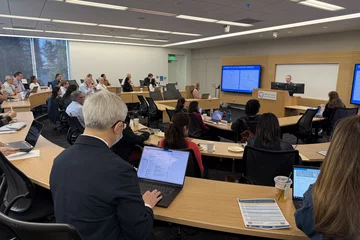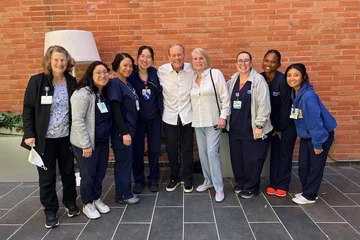Study reveals how smoking worsens COVID-19 infection in the airways

UCLA researchers using a model of airway tissue created from human stem cells have pinpointed how smoking cigarettes causes more severe infection by SARS-CoV-2, the virus that causes COVID-19, in the airways of the lungs.
The study, led by scientists at the Eli and Edythe Broad Center of Regenerative Medicine and Stem Cell Research at UCLA and published in Cell Stem Cell, will help researchers better understand COVID-19 risks for smokers and could inform the development of new therapeutic strategies to help reduce smokers’ chances of developing severe disease.
To help understand how smoking affects SARS-CoV-2 infection on a cellular and molecular level, Dr. Brigitte Gomperts partnered with co-senior authors Vaithilingaraja Arumugaswami, an associate professor of molecular and medical pharmacology, and Kathrin Plath, a professor of biological chemistry, to recreate what happens when the airways of a current smoker are infected with SARS-CoV-2.
This work was supported in part by UCLA CTSI along with the National Institutes of Health, the UCLA Medical Scientist Training Program, a UCLA David Geffen School of Medicine–Broad Stem Cell Research Center COVID-19 Research Award, the California Institute for Regenerative Medicine, the Tobacco-Related Disease Research Program, and the Ablon Scholars Program at the UCLA Jonsson Comprehensive Cancer Center and UCLA Broad Stem Cell Research Center.
Read the full UCLA press release.
Image source: UCLA Broad Stem Cell Research Center/Cell Stem Cell
Image caption: Microscopic images of human stem cell–derived airway tissue models with cell nuclei (blue) and SARS-CoV-2–infected cells (green); tissue exposed to cigarette smoke (right) had 2 to 3 times more infected cells than non-exposed tissue (left).



